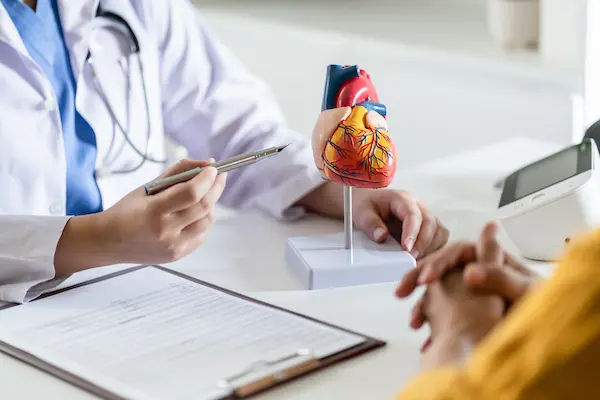- male
- 60 Years
- 22/01/2025
I'm really worried about my dad's blood pressure. It's been 18090 even after I checked it twice, and then an hour later, it was 15088. He always brushes off his health issues, and I don't know how to help him keep his heart rate and blood pressure normal. What should I do?
Answered by 1 Apollo Doctors
High blood pressure can lead to serious health issues, so it's important to manage it properly. Here are some steps you can take to help maintain his blood pressure. Encourage him to follow a healthy diet low in sodium and high in fruits, vegetables, and whole grains. This can help lower blood pressure. You can also recommend the use of a salt substitute like LoSalt. Regular exercise is important for managing blood pressure. Encourage him to engage in at least 30 minutes of moderate exercise most days of the week. Stress management techniques such as deep breathing exercises, meditation, or yoga can help lower blood pressure. Ensure he is taking his medications regularly if prescribed by a doctor. Common medications for high blood pressure include Amlodipine 5mg and Losartan 50mg. Encourage him to limit alcohol intake and quit smoking if he does. Regular monitoring of blood pressure at home and keeping a record of readings can help track progress and identify any patterns. Remember, these are general recommendations and it's important for your father to follow up with his healthcare provider for personalized advice and treatment.
Dr. Dhankecha Suggests...
Consult a Cardiologist
Answered 04/07/2025
0
0

More Cardiology Health Queries
View allI'm really concerned about my mom who's dealing with a lot of health issues like type 2 diabetes, hypertension, heart failure, and ischemic heart disease. Her doctor has prescribed quite a few meds like Dytor, Monit GTN, Orfer XT, Planep, Cardace, Rosucor, Ecosprin, Pantocid, and even insulin and the duolin inhaler. Now, she's been given tryptomer 10 mg, and I'm worried about whether it's really safe for someone with heart failure to take this. Can you help shed some light on this for me?
yes tryptomer should not be taken since the medicine is contra-indicated.Kindly stop tab tryptomer tablet is advised.
Answered by 1 Apollo Doctors
I'm 32 and I noticed my heart rate hit 140 before I was even stressed, and during the second and third stages, it jumped up to between 190 and 202. My ECG came back normal otherwise. Should I be worried that this is risky for my heart or something serious? Is it possible for it to get back to normal with medication? Could this kind of change shorten the life of my heart? What kind of treatment or solution should I be looking into?
The ultrasound report indicates a PCO (Polycystic Ovary) pattern in both ovaries. This means multiple small cysts are present, a common finding in women with Polycystic Ovary Syndrome (PCOS). No abnormal solid or cystic lesions were detected, which is reassuring. Ovarian size is within normal range (33x18mm). Consult a gynecologist to discuss the report and determine next steps. Further evaluation may be necessary to confirm or rule out PCOS.
Answered by 1 Apollo Doctors
I've noticed my SPO2 levels usually range from 96 to 98, but sometimes they drop to 90 before going back up to 96. I'm not sure which reading I should pay attention to. Also, my BPM is consistently over 100. Meanwhile, my mom, who's 51, has a normal BPM between 72 and 80. I'm worried if these symptoms could be related to any heart or lung issues, especially since I haven't had COVID. Could you give me some advice on this?
overthinking
Answered by 1 Apollo Doctors
Disclaimer: Answers on Apollo 247 are not intended to replace your doctor advice. Always seek help of a professional doctor in case of an medical emergency or ailment.




